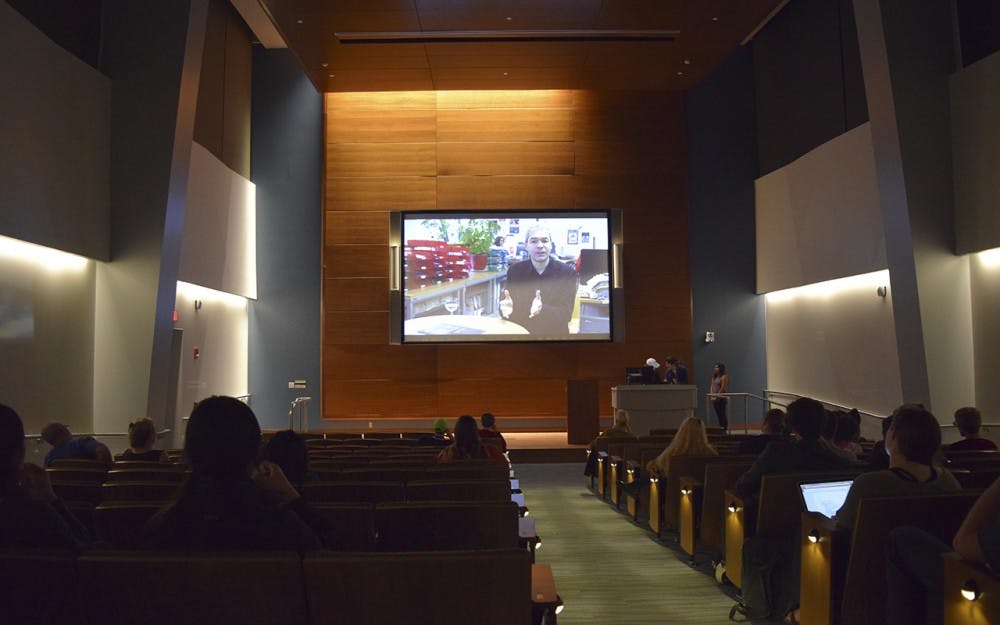Zara, Forever 21, Gap and Joe Fresh are popular stores that produce cheap, fashionable clothing.
But on Thursday night in the Global and International Studies Building auditorium, two campus organizations joined together to question the cost of cheap and trendy clothes produced by overseas labor.
Oxfam, a student group focused on global hunger, poverty and social issues, and BuyGood, a student organization dedicated to bringing fair trade to IU, partnered to view the film “The True Cost” and discuss quick fashion and its social and environmental effects globally.
The film addressed the 2013 garment factory collapse in Dhaka, Bangladesh, which killed over 1,000 people; the protest in Phnom Penh, Cambodia, that advocated for an increased wage for factory workers and ended in a violent clash with police; and the pollution of the Ganges River in Kanpur, India.
Then, Apparel Merchandising Professor Mary Embry and Master’s student Molly Keogh contributed their expertise to the issues addressed in the film.
“Fashion does play a critical role in identity,” Embry said. “I live in a culture where I have 20 T-shirts in my closet, more than one would ever need. These are hard questions personally and collectively to face.”
Embry said fashion is the number one industry that exploits labor and is number two in environmental pollution, a key issue presented in the movie.
However, Keogh said the film did not talk about one important issue: a solution to the labor, social and environmental issues in the fashion industry.
“What we didn’t see here was any kind of conversations about solutions,” Keogh said. “It’s necessary to be aware how intense and terrible the things that happened are. It’s easy to feel hopeless. ‘I’m one person in Bloomington. We have a mall.’”
Keogh has addressed the issues of fast fashion by starting her own fashion company, Osei-Duro, out of Los Angeles and Accra, Ghana. She emphasizes having direct relationships with everyone she works with.
“There is too much product, and we don’t need this much stuff,” Keogh said. “It allows that kind of distance. It allows Walmart not to know where their clothes are made.”
Esmeralda Martinez, a member of BuyGood, helped organize the event because she feels it is important for people to be aware of consumer culture.
Martinez is studying environmental science and hopes to raise awareness of the consequences the industry can have on the environment through this event.
“Considering how big the fashion industry is, it is in a huge way poisoning Earth,” she said. “We should try to act on it.”
Blessing Olumoroti, a student in comparative literature, came to the event because she said it sounded interesting and she has personal interest in the cause, even though it doesn’t directly connect to her major.
“I am really into trying to find outlets that make clothes sustainably,” she said.
Embry and Keogh talked about the most sustainable brands for college students to buy.
“Small is better,” Embry said. “Transparent is better. Local buys are better, to me.”






